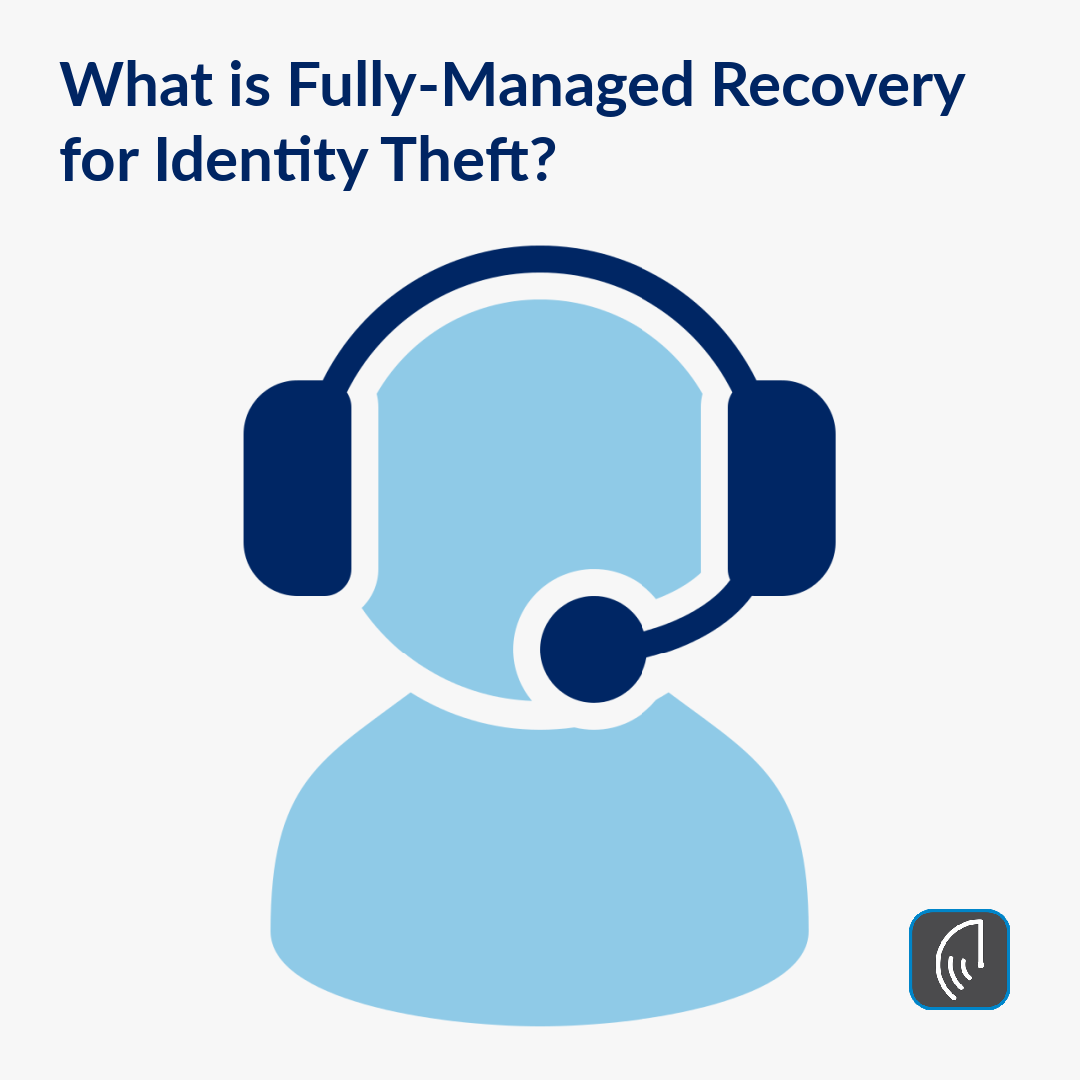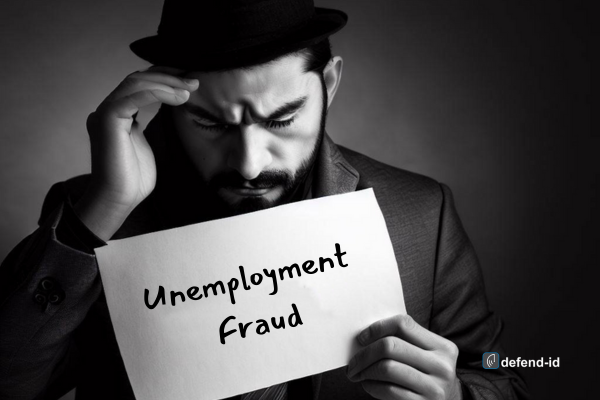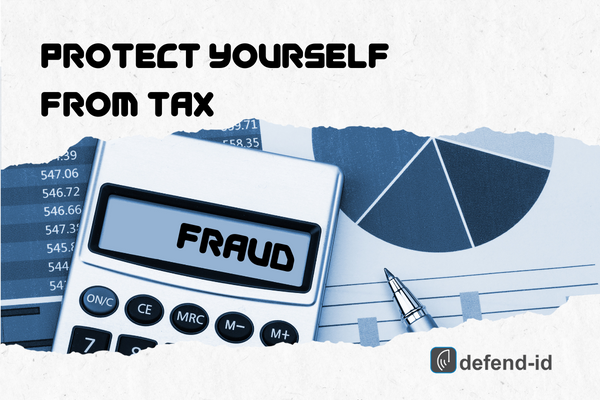
by Brian Thompson | Jul 20, 2023 | General
The rapid shift to remote work brought on by the COVID-19 pandemic has fundamentally changed the way we work and interact online. While remote work has provided many benefits, it has also exposed a significant vulnerability. Over 75% of Remote Workers Don’t Use a VPN creating risk in the form of cybersecurity.
In a recent survey highlighted by TechRadar, it was found that a staggering 88% of remote workers do not use a Virtual Private Network (VPN) while carrying out their work tasks. This alarming statistic raises concerns about the potential heat wave of cyber threats that may hit this summer.
In this article, we will delve into the importance of VPNs, the risks associated with remote work without one, and practical steps to ensure a secure work environment.
Understanding VPNs and their Importance
A Virtual Private Network (VPN) like Remote WorkForce creates an encrypted connection between a user’s device and the internet, providing a secure pathway for data transmission. By routing internet traffic through a remote server, VPNs shield online activities from prying eyes and potential cyber threats.
This encryption technology safeguards sensitive information, such as login credentials, financial data, and proprietary company information, from falling into the wrong hands.
Remote WorkForce VPN automatically routes the request directly to the requested resource, regardless of where it is located, via a secure tunnel established for that user.
The Risks of Remote Work
Without the protection of a VPN like Remote WorkForce, remote workers are more susceptible to various cyber threats. Here are some of the risks they face:
- Data Interception: Public WiFi networks, commonly used in cafes, airports, or hotels, are notorious for their lack of security. Hackers can easily intercept data transmitted over these networks, potentially gaining access to usernames, passwords, and other confidential information.
- Man-in-the-Middle Attacks: In a man-in-the-middle attack, an attacker secretly relays and possibly alters the communication between two parties. This enables them to intercept sensitive information exchanged between remote workers and their company’s servers, posing a serious threat to data integrity and confidentiality.
- Phishing Attacks: Phishing emails and websites are a common method used by cybercriminals to trick users into revealing sensitive information. Without a VPN, remote workers are more susceptible to falling victim to these attacks, which can result in identity theft, financial loss, or unauthorized access to company systems.
- Malware Infections: Remote workers who connect directly to the internet without the protection of a VPN like Remote WorkForce are at a higher risk of downloading malware. Malicious software can compromise the security of both personal and company devices, leading to data breaches and system malfunctions.
Ensuring a Secure Work Environment
To mitigate the risks associated with remote work, it is crucial for organizations and individuals to adopt secure practices. Here are some practical steps to establish a secure work environment:
- Educate and Raise Awareness: Organizations should provide comprehensive training on cybersecurity best practices to remote workers. This includes the importance of using a VPN like Remote WorkForce, recognizing phishing attempts, and following secure password protocols. Regular reminders and updates can help employees stay vigilant and informed.
- Implement a VPN Policy: Companies should establish a clear policy mandating the use of VPNs for all remote workers. This policy should outline the consequences of non-compliance and provide guidelines for selecting and configuring VPN software.
- Use Multi-Factor Authentication (MFA): Enforcing the use of MFA adds an extra layer of security by requiring users to provide multiple forms of authentication, such as a password and a unique code sent to their mobile device. This greatly reduces the risk of unauthorized access, even if passwords are compromised.
- Secure Remote Access: Remote workers should ensure that their home WiFi network is encrypted and password protected. Regularly updating router firmware and changing default login credentials is crucial to prevent unauthorized access to their network.
- Regular Software Updates: Keeping devices and software up to date is vital for security. Remote workers should regularly install updates and patches for their operating systems, applications, and antivirus software to stay protected against the latest vulnerabilities.
Use a VPN Like Remote WorkForce to Stay Safe
The TechRadar survey revealing that 88% of remote workers do not use a VPN highlights the urgent need to address cybersecurity vulnerabilities in the remote work environment. As the summer months approach, the risks of cyber threats loom large.
By understanding the importance of VPNs, recognizing the risks of remote work without one, and implementing secure practices, both organizations and remote workers can take proactive steps to safeguard sensitive information and maintain a secure work environment.
Some SMBs need an even more robust solution, so we developed Remote WorkForce ZTN. In addition to providing VPN capabilities, Remote WorkForce ZTN provides end-to-end encryption for all IT resources, without requiring back-hauls through the LAN for resources in the cloud. Routing to the appropriate network is handled automatically, simplifying access for users. Remote WorkForce ZTN provides a true Zero Trust layer on top of our VPN. Employees only have access to IT resources that they are specifically authorized to use. Other corporate resources are not even visible and any unauthorized attempts to access them are blocked.
Let’s embrace the benefits of remote work while staying vigilant against the rising tide of cyber threats by using a VPN/ZTN solution like Remote WorkForce.
Related Articles:

by Brian Thompson | May 25, 2023 | General, healthcare, Identity Theft
In the sinister world of identity theft, I have witnessed firsthand the disastrous repercussions it inflicts on unsuspecting victims. Here we are unmasking the dark reality of identity theft and exposing the alarming truth behind it, revealing its profound impact on individuals, their families, and their professional lives.
The cost
- Personal Ruin and Financial Catastrophe: Identity theft strikes like a stealthy predator, leaving its victims vulnerable to financial ruin. Imagine your hard-earned savings depleted, your credit ruined, and loans taken out in your name without your consent.
- Shattered Trust and Emotional Turmoil: The aftermath of identity theft is an emotional rollercoaster, causing victims to question their own security and trust in others. Anxiety, stress, and sleepless nights become their unwelcome companions.
- Family Bonds Under Siege: Identity theft tears through the fabric of family life, leaving behind a trail of shattered trust and fractured relationships. The burden of restoring stolen identities often strains familial bonds to the breaking point.
- Tainted Reputations and Professional Downfall: Imagine the catastrophic impact on your professional life as your reputation is tarnished by the fraudulent actions of identity thieves. All of wich can lead to job loss, damaged career prospects, and shattered aspirations.
- Legal Nightmares and Lingering Consequences: Victims of identity theft find themselves ensnared in a labyrinth of legal battles, struggling to reclaim their stolen identities. The long-lasting repercussions can haunt them for years, hindering their financial and personal growth.
- Traumatic Implications on Work-Life Balance: The theft of one’s identity wreaks havoc on work-life balance, as victims are consumed by the arduous task of reclaiming their lives, juggling legal battles while striving to maintain job responsibilities.
- Profound Psychological Impact: Identity theft leaves deep psychological scars, eroding victims’ self-esteem and instilling a constant sense of vulnerability. The fear of being victimized again permeates their every thought and action.
Identity theft is a haunting reality that has dire consequences for individuals, their families, and their professional lives. Only through increased awareness and proactive security measures can we combat this insidious menace.
In a world where identity theft looms as an ever-present danger, it is vital to recognize its grave implications. Take the necessary steps to protect ourselves, our loved ones, and spread the word!
Need a plan?
Unmasking the Dark Reality of Identity Theft may is an alarming reality but we have your back. Get your identity theft response plan for employers here: https://defend-id.ac-page.com/employee-identity-theft-response-plan
Learn More: https://www.defend-id.com/
Related article:The Emotional Toll of Identity Theft

by Brian Thompson | May 2, 2023 | General, Identity Theft
Fully-Managed Recovery for Identity Theft victims is the most important feature a provider can offer. BUT, all “fully managed/full Service” recovery programs are not the same. There is no defined standard of service when using these terms, so it is crucial to understand what an excellent full-service provider does.
Imagine the anxiety of having your identity stolen, or you may know firsthand. The ability to turn to an expert who helps people every day is incredibly comforting. Without that place to turn, many wander looking for solutions to get their identity back. Few are successful, many do what they can but don’t know everything they must do. And to top it off, all of us who have been victims are more susceptible to having our identity stolen again.
So if we are serious about ensuring our recovery, we need to have the best resources to make that happen.
A well-developed, fully managed recovery service lays out a path to recovery.
Here is what a good program looks like
A good program includes Multi-Generation, fully-managed recovery for identity theft victims. You receive 24/7/365 support and access to a Recovery Advocate. You are covered regardless of the type of identity fraud, including but not limited to medical, financial, criminal, and acts of terrorism. Fully managed recovery provides you with peace of mind knowing, you will have access to a dedicated, certified Recovery Advocate. Your advocate will work on your behalf, performing all tasks necessary to restore your identity, through the use of a limited power of attorney. This work includes completing and filing forms, conducting research, contacting all companies, agencies, and financial institutions necessary, to ensure that all fraudulent activity identified is addressed and resolved.
Dedicated Certified Recovery Advocate
-
- A highly qualified individual with the following credentials: FCRA, FACT Act, CITRMS Certified, and Licensed Private Investigators
- A single point of contact for you during the recovery of your identity
- A direct phone number, email, and fax number to your dedicated recovery advocate
- They will submit disputes on your behalf
- Criminal investigation assistance and evidence capture
- Creation of law enforcement grade case file
Customized Recovery Plan
-
- Personalized fraud recovery plan
- Plans Include all fraud types: medical, financial, criminal identity theft, etc.
- 3-Bureau Credit Reports as required by the circumstances of your case
- Additional research with access to billions of public records
- 12 Months of follow up to ensure resolution
Fraud Packet with Limited Power of Attorney
-
- Provides essential information, resources and all the documents necessary to begin recovery
- Allows your dedicated Recovery Advocate to work on your behalf
- Your Recovery Advocate will contact creditors, government offices, collection agencies, and any other entity
Identity Care Account or Resource Center for your specific case.
-
- allows a convenient means to track the progress of your identity theft case securely 24/7/365
- Your Recovery Advocate can securely upload case documents to your account for you to review, print or save electronically
- Online access to view your credit report and score
- Online access to view your credit monitoring alerts
Credit Monitoring & Alerts
-
- For the duration of your case and an additional 12 months following the resolution
- Receive alerts on new issues which may impact your credit file
Credit Report & Score
-
- Provided to you at the outset of your case to benchmark your credit file
Family Plan Benefit
-
- A qualifying family participant shall mean the primary consumer’s spouse or domestic partner, the consumer’s dependents who have the same permanent address as the primary consumer, any IRS-qualified dependents, and parents (mother or father) of the consumer who have the same permanent address as the consumer, or, who are registered in a senior assisted living facility, nursing home, or hospice. Services continue to provide coverage for up to 72 months after death for all covered members
Fully-Managed Recovery for Identity Theft is the crucial feature of any program out there. It is the most important feature in giving you peace of mind and a place to turn.
Learn more about the other features of Identity theft monitoring here: 14 features of Identity Theft Protection Monitoring and the Most Important Feature!
Or Read about how ID Theft Increases Stress and Fatigue here.

by Brian Thompson | Mar 30, 2023 | General, Identity Theft
As an employer, you might think that identity theft and fraud only happen to individuals. However, fraudsters are not only after personal information but also after company assets, particularly unemployment insurance funds. With the easing of regulation and an increase in benefit amounts, the filing of fraudulent unemployment claims has become a particularly profitable avenue for criminals recently. In fact, according to the Government Accountability Office, in 2020 alone, the US government paid out over $12 billion in fraudulent unemployment benefits.
What is unemployment fraud?
It occurs when someone knowingly and willfully makes false statements or withholds information to obtain unemployment insurance benefits. During the COVID pandemic, unemployment fraud has skyrocketed due to the high number of people who lost their jobs and the increase in benefit amounts. Fraudsters have taken advantage of overwhelmed state agencies that are responsible for processing claims and submitting false claims on behalf of others, including people who still have jobs.
Protect your company
To protect against unemployment fraud, employers should be aware of the tactics used by fraudsters. Here are some steps employers can take to protect their companies from unemployment fraud:
- Educate employees about unemployment fraud: Let your employees know about the potential for fraud and provide them with information on how to spot and report it.
- Monitor unemployment claims: Regularly review and monitor claims filed against your company. If an employee is still working for you and you receive a claim for unemployment benefits on their behalf, report it immediately.
- Respond to notices promptly: If you receive a notice of unemployment benefits filed on behalf of one of your employees, respond promptly with accurate and detailed information.
- Keep employment records up-to-date: Ensure that your employee records are accurate and up-to-date. This includes information such as start and end dates of employment, pay rates, and job titles.
- Consider a third-party vendor: Consider using a third-party vendor to help manage unemployment claims. These vendors can provide expertise in handling claims and help identify potential fraud.
Suspect Fraud?
If you suspect fraudulent activity, you should take immediate action. The first step is to report the suspected fraud to the appropriate state agency. You should also conduct an internal investigation to determine if fraud has occurred within your organization. If fraud is confirmed, take action to prevent further losses and report the incident to the appropriate law enforcement agency.
It’s important to note that unemployment fraud is a form of identity theft, and as an employer, you may also have to address the potential identity theft of the affected employee and other employees. When fraudsters obtain an employee’s personal information to file a fraudulent unemployment claim, it can lead to other forms of identity theft, such as credit card fraud or opening fraudulent accounts in the employee’s name. Therefore, it’s essential to take swift action and report any suspected fraudulent activity to prevent further losses and protect your employees’ personal information. By doing so, you can help safeguard your company’s assets and reputation, as well as ensure the well-being of your employees.
While fraudsters may use various tactics to steal from individuals and companies, unemployment fraud is a particular concern for employers. By taking the steps outlined above, employers can help protect their companies from fraudulent unemployment claims and ensure that unemployment insurance funds are used for their intended purpose. Stay vigilant and report any suspected fraudulent activity immediately.
Related articles

by Brian Thompson | Mar 15, 2023 | Breach, General, Identity Theft
Silicon Valley Bank (SVB) collapsed on March 10, 2023, which has caused a ripple effect throughout the global financial system. Unfortunately, the SVB Collapse Enables Scammers to take advantage of the situation and use the bank’s downfall to scam people.
SVB was a US-based commercial bank and the 16th largest bank in the country, which also happened to be the largest bank by deposits in Silicon Valley, California. The bank failed after a run on its deposits, which has impacted many businesses and people in the technology, life science, healthcare, private equity, venture capital, and premium wine industries who were customers of SVB.
What they are using
Security researchers have noted that hackers are registering suspicious domains and conducting phishing campaigns, preparing for business email compromise (BEC) attacks. These attacks aim to steal money, steal account data, or infect targets with malware.
Researcher Johannes Ulrich has reported that threat actors are already registering suspicious domains related to SVB that are very likely to be used in attacks. Cyber-intelligence firm Cyble has also published a report exploring developing SVB-themed threats and warning about additional domains. Some examples given in a report published on the SANS ISC and Cyble websites include:
- login-svb.com,
- svbbailout.com,
- svbcertificates.com, svbclaim.com,
- svbcollapse.com,
- svbdeposits.com,
- svbhelp.com,
- svblawsuit.com.
- svbdebt.com,
- svbclaims.net,
- svb-usdc.com,
- svb-usdc.net,
- svbi.io,
- banksvb.com,
- svbank.com,
- svblogin.com.
Many of these sites were registered on the day of the bank’s collapse and are already hosting cryptocurrency scams.
How they are using it
The scammers might attempt to contact former clients of SVB to offer them a support package, legal services, loans, or other fake services relating to the bank’s collapse. Some threat actors are impersonating SVB customers and telling customers that they need payments sent to a new bank account after the bank’s collapse. However, these bank accounts belong to the threat actors, who steal payments meant to go to the legitimate company.
These scam pages tell SVB customers that the bank is distributing USDC as part of a “payback” program. However, clicking on the site’s ‘Click here to claim’ button brings up a QR code that attempts to compromise crypto wallets when scanned.
In another case, the threat actors behind “cash4svb.com” attempt to phish former SVB customers’ contact information who are trade creditors or lenders, promising them a return between 65% and 85%.
SVB Collapse Enables Scammers to take advantage of the situation and use the bank’s downfall to scam people. Overall, people must be vigilant about these scams and take steps to protect themselves from cybercriminals.
related articles

by Brian Thompson | Feb 15, 2023 | General, Identity Theft
Tax identity theft is a type of identity theft that occurs when someone uses your personal information to file a fraudulent tax return and claim a refund. It can have serious consequences, including delays in receiving legitimate refunds, penalties for underpayment, and damage to your credit score. In this article, we’ll explain how tax identity theft occurs, how to spot the warning signs, and what you can do to protect yourself from Tax Fraud
How Tax Identity Theft Occurs
Tax identity theft can occur in a number of ways. For example:
- Phishing scams: Scammers request personal information such as Social Security numbers or bank account details through emails or phone calls that appear to be from the IRS.
- Data breaches: Hackers steal personal information from large companies or government agencies and sell it on the black market for tax identity theft purposes.
- Stolen mail: Criminals steal mail that contains personal information, such as tax documents like W-2 forms or 1099s.
- Social engineering: Scammers use social engineering tactics, like creating fake job postings or fake charity organizations, to trick people into revealing personal information.
Warning Signs of Tax Identity Theft
According to the IRS, some of the warning signs of tax identity theft include:
- The IRS sends a letter stating multiple tax returns were filed or unknown wages were received.
- You can’t file an electronic tax return because someone filed with your Social Security number.
- A tax transcript arrives in the mail, despite not requesting it.
- You get an IRS notice that someone opened an online account in your name.
- You receive an unexpected refund or an incorrect refund amount.
- You receive a tax bill for taxes you didn’t owe.
How to Protect Yourself from Tax Fraud
There are several things you can do to protect yourself from tax identity theft:
- Safeguard personal information: Only provide personal details to trusted individuals or organizations. Beware of unsolicited phone calls or emails requesting such information.
- File taxes early: Early filing reduces the risk of a fraudster filing a return in your name.
- Check credit report regularly: Regularly checking your credit report helps you spot unusual activity like unauthorized new accounts or loans.
With defend-id Coverage, Protect Yourself from Tax Fraud
At defend-id, we understand the importance of protecting your identity and your finances from tax fraud. That’s why we offer fully managed recovery programs to help you recover from the effects of identity theft. Our team of experts will work with you to restore your credit, recover lost funds, and ensure that your identity is fully restored. Learn more about our fully managed recovery programs here: What’s Fully Managed Recovery for Identity Fraud
Tax identity theft is a serious threat that can cause financial hardship and personal stress. Protect yourself by being vigilant with personal information, filing taxes early, and checking your credit report regularly. If you do become a victim, Defend-ID’s fully managed recovery program can help restore your identity. Learn more about the program on our blog. Stay safe and secure!
Don’t let tax identity theft damage your finances and your credit. Take steps to Protect Yourself from Tax Fraud, and consider defend-id’s fully managed recovery programs to give you peace of mind.
Learn more: Protect employees from tax fraud. Peace of Mind with a Place to Turn is a great benefit your employees will appreciate.
Related articles: Early Tax Filing Helps Prevent Tax-Related Identity Theft





